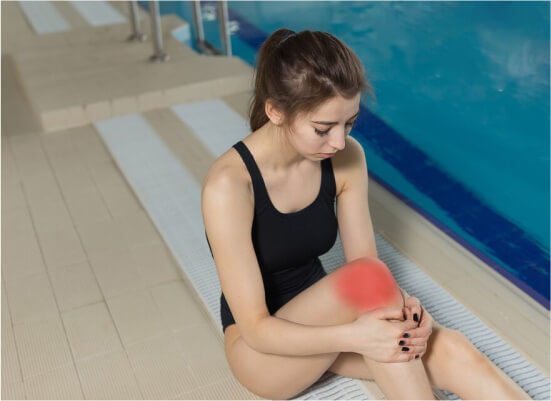Swimming Pool Injuries
According to the Centers for Disease Control, between 2005 and 2014, there were 3,536 annual non-boating related drownings in the United States — roughly ten deaths per day. Unfortunately, one out of every five drowning deaths happens to victims age 14 or younger. And non-fatal pool injuries like traumatic brain injuries (TBIs) and spine injuries can cause life-changing injuries. As you gear up for fun in the sun with family and friends this summer, learn about common pool injuries, and what you can do to prevent them.
Common Swimming Pool Injuries
Spending a summer day at the pool should be a relaxing and fun way to spend time with family and friends. However, there’s an unfortunate connection between swimming pools and serious injuries. Some of the most common swimming pool injuries include:
- Drowning
- Slip and falls
- Diving board injuries
- Back, neck, and spine injuries, including spinal cord injuries
- Traumatic brain injuries
- Cuts or lacerations
- Broken bones
- Bruises and contusions
While some pool injuries, like a skinned knee, are minor, others can result in devastating or even fatal injuries.
Set Pool Safety Rules
While pool safety rules may not seem fun, they help keep everyone, especially children, safe. We suggest implementing a variety of rules to protect you and your loved ones:
- There should always be adult supervision at a pool, even if a lifeguard is already on duty.
- Implement a no-running policy on the pool deck to avoid slip and fall injuries.
- Swimmers should stay away from drains.
- No one should dive in the shallow end of the pool.
- Install a pool fence and consistently cover your pool when it’s not in use.
- Discourage excessive alcohol consumption around the pool.
- Put pool floats and toys away when the pool is not being used.
Explaining these rules and upholding them is an important way to keep yourself and others safe at the pool this summer.
Avoid Swimming in Murky Pools
Murky pools are not only a breeding ground for bacteria; they’re dangerous. In a murky swimming pool, it can be hard to see where the drains are or to assess its depth.
Pool drains are hazards because they can entrap children’s limbs and hair, pinning them to the bottom of the pool or underwater. This danger is even more acute when the water isn’t clear enough to see the drains and avoid them.
Use Pool Safety Equipment and Coast Guard-Approved Flotation Devices
Ensuring all swimmers have the proper pool safety equipment available to them is a simple way to avoid drownings and injuries. Insist that weak or inexperienced swimmers wear Coast Guard-approved lifejackets that fit well and are up to date. Even for good swimmers, fatigue from extended swimming and time in the sun can increase their risk of drowning.
As a reminder, many novelty pool floats and inflatable toys are not Coast Guard-approved safety devices. In fact, some safety experts warn that pool floats, especially enclosed pool toys that can flip easily, are a drowning hazard. You should also limit the number of large floats that are in the pool at one time—they can prevent you from identifying a drowning or another safety incident until it’s too late.
Learn CPR and Keep a Basic First Aid on Hand
Staying up-to-date on your knowledge of CPR and other first aid techniques can save your family and friends’ lives during a poolside emergency. While public pools are required to have a lifeguard on duty, the ratio of swimmers to guards can often be as high as 100 to one.
It’s also always a good idea to have a first aid kit with bandages and other equipment. Even a small kit that can go in your bag when you visit the public pool can be helpful if you or someone you love gets injured while enjoying the water.
During a pool accident or emergency, you should try to get the victim to safety while someone calls 911. If the victim is non-responsive, immediately start CPR, and continue it until emergency medical responders arrive or the victim begins breathing on their own.
Lawyers for Swimming Pool Injuries
When swimming pool injuries occur, you deserve answers and accountability. If you or someone you love experienced a life-changing injury or died at the pool, you could be eligible for financial compensation. The personal injury lawyers at AMA Law are adept at handling sensitive cases with the utmost respect and compassion. Our team fights hard to see that each of our clients get the justice they deserve.
Do you need to schedule a free consultation with our team? Contact us today by filling out this simple online form, or by calling us at (405) 607-8757.
References
Centers for Disease Control and Prevention. Unintentional Drowning: Get the Facts. Retrieved from https://www.cdc.gov/homeandrecreationalsafety/water-safety/waterinjuries-factsheet.html
The content provided here is for informational purposes only and should not be construed as legal advice on any subject.
